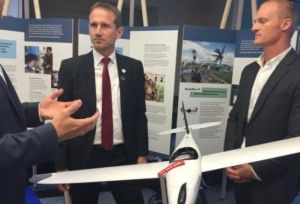News
Denmark part of new humanitarian effort
This article is more than 9 years old.
Technology at the forefront of international network

The foreign minster is hard at work in Istanbul (photo: Danish Foreign Ministry)
Kristian Jensen, the foreign minister, is in Istanbul taking part in the Humanitarian World Summit in Istanbul. He has committed 2 million kroner to a new international network to develop innovation in emergency areas.
READ MORE: Denmark bringing millions to Istanbul summit
The network, the Global Alliance for Humanitarian Innovation (GAHI), will include a wide range of global, regional and national participants.
“The world faces massive humanitarian challenges,” said Jensen.
“Therefore, Danish and international organisations need to innovate and co-operate with new private players. By including new technology and smart solutions targeted at specific groups, the same amount of funds can do more for a greater number of people.”
Information and hygiene
Two Danish companies in the network, Blue Town and Icono, are contributing with a solar-driven wifi hotspot and a child-friendly latrine.
Both are examples of products that can make a life or death difference to people in crisis situations.
Solar-powered wifi access can give villages access to vital information, and child-friendly latrines can improve hygiene and help prevent the spread of disease.
READ MORE: Denmark earmarks millions for fight against global hunger
“Humanitarian organisations and private companies can mutually benefit from helping the millions of needy people around the world,” said Jensen.
“I am happy that Denmark is helping to get this new network of innovative thinkers off to a good start.”










































